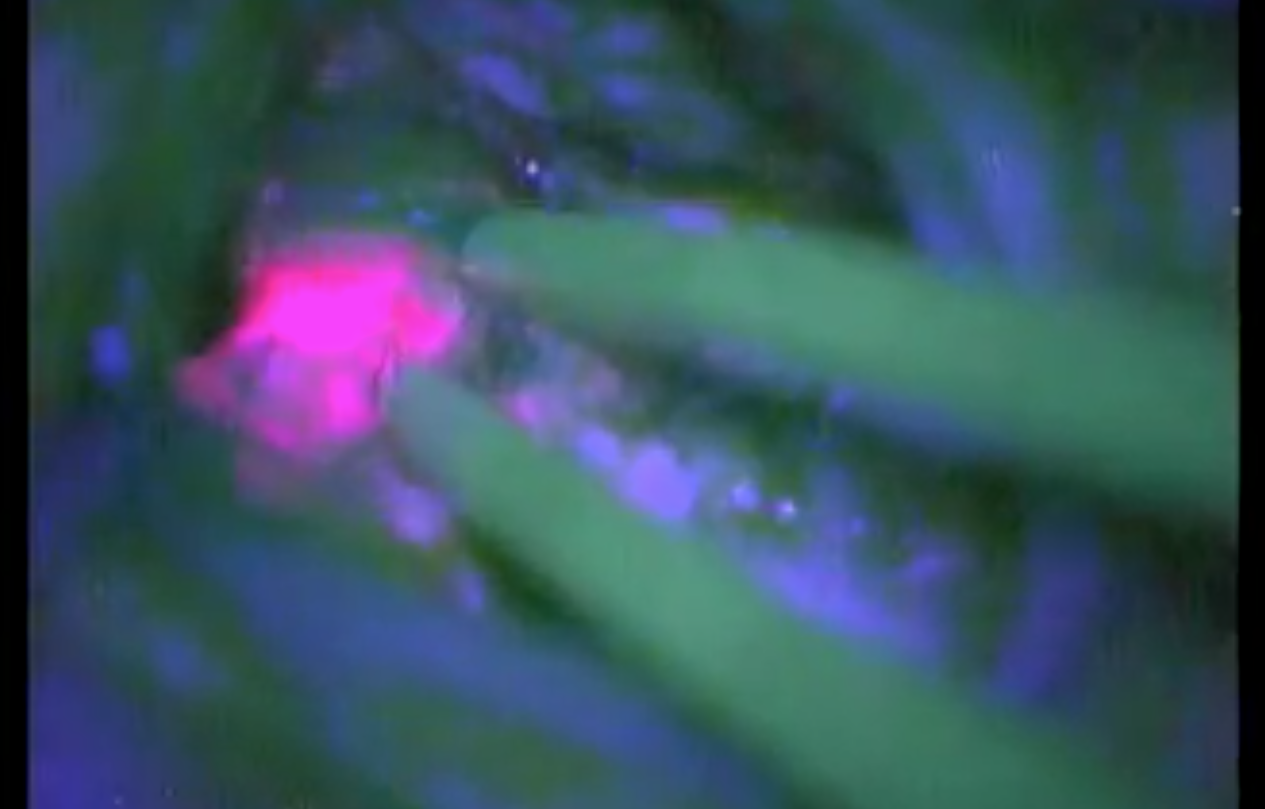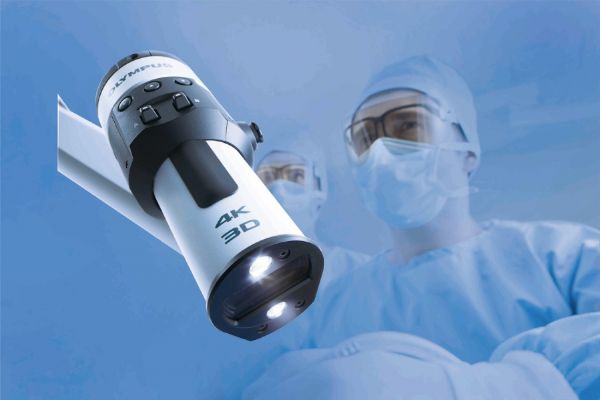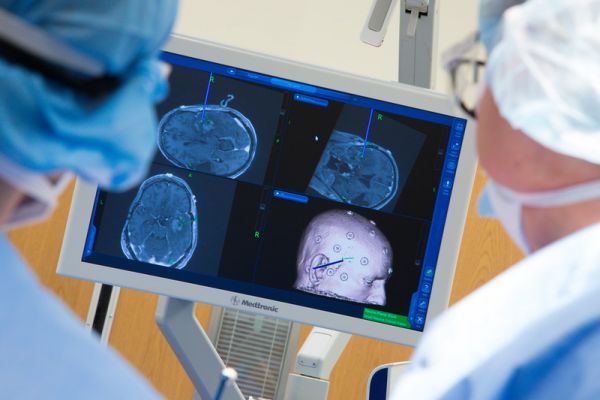Roswell Park’s neurosurgeons have a new tool in the fight against brain cancer. Gleolan (aminolevulinic acid HCl) is now being implemented in the removal of high-grade brain tumors — specifically, gliomas. Gleolan is an imaging agent, which, when taken before surgery, makes the tumor appear to glow underneath a blue light.
“Some types of brain tumors appear very similar to normal brain tissue in the operating room,” says Lindsay Lipinski, MD, FAANS. “It’s important to be able to differentiate tumor cells from neighboring normal healthy tissue. Gleolan gives the surgeon another tool to help safely remove as much tumor as possible without harming healthy tissue that may control critical cognitive functions, such as speech or balance.”
Gleolan is taken orally two to four hours before anesthesia. It settles in the cancerous cells, so when a neurosurgeon views the brain under a blue light filter, the tumor appears to glow pink. The surgeon can then remove the tumor cells, including any finger-like projections that may not be clearly visible under regular lighting. This allows more of the cancerous tissue to be removed. Since healthy cells do not glow under the filter, they can be protected and preserved.
By highlighting the tumor, Gleolan can help surgeons find and remove some of the glioma’s smaller, aggressively growing cells. “It’s crucial to remove as many cancer cells as possible, since a higher degree of removal is linked to better outcomes," explains Lipinski. "The earlier and more effectively we stop the tumor from spreading, the longer patients remain tumor-free."
In addition to Dr. Lipinski, Roswell Park neurosurgeons Robert Fenstermaker, MD, and Andrew Fabiano, MD, FAANS, have trained in using this imaging agent to assist with surgery.
Never miss another Cancer Talk blog!
Sign up to receive our monthly Cancer Talk e-newsletter.
Sign up!Dr. Lipinski points out that after the procedure, patients are extremely sensitive to sunlight and direct indoor lighting — a temporary condition called photosensitivity.
“Our team will limit your exposure while you’re in the hospital,” says Lipinski. “After surgery, patients can experience severe sunburn if they are exposed to bright lights or sun in the first few days.”
Gleolan is not a cancer treatment and does not interfere with any other forms of treatment you may need, such as radiation or chemotherapy, nor does it impact the rest of your care in any way.




